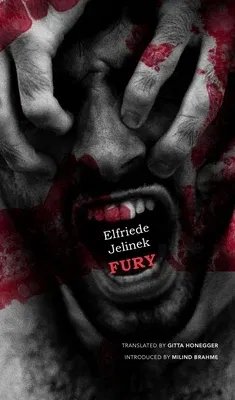A new play from Nobel Prize winner Elfriede Jelinek that deals with
the 2015 terror attack on the satirical French magazine Charlie
Hebdo's offices in Paris.
In Greek mythology, it is Hera who blinds the hero Heracles, so that, in
a fit of fury, he kills his own family. In the twenty-first century, the
gods have another name. So did the three young men who stormed a
magazine's editorial office and a Jewish supermarket in Paris in January
2015 and murdered twelve people. The blind fury, however, remained and
more virulent than ever, not least because the weapons were so much more
effective.
In this raging text, arguably one of her darkest, Nobel Prize winner
Elfriede Jelinek investigates topical political events in the context of
enduring history and myths. Fury expresses itself not only multi-voiced
and from the changing perspective of Islamist terrorists (and their
special hatred of Jews), in the shape of furious German citizens,
individual narcissistic humiliation, or brutal distribution battles
around the globe. Rather, fury also appears as the motor that has driven
people with a devastating force for centuries.
With her characteristic linguistic power, Jelinek articulates her own
disconcertedness in the face of these crimes. In passing, she returns
repeatedly to the contradiction between religious laws against
representation and the deluge of images online, where movies of
assassination, severed heads, and other atrocities are exhibited for
millions to see. Fury is a compact grand epic that starts in primal
times and attempts to describe the indescribable, relating the
inexplicable in our times.

